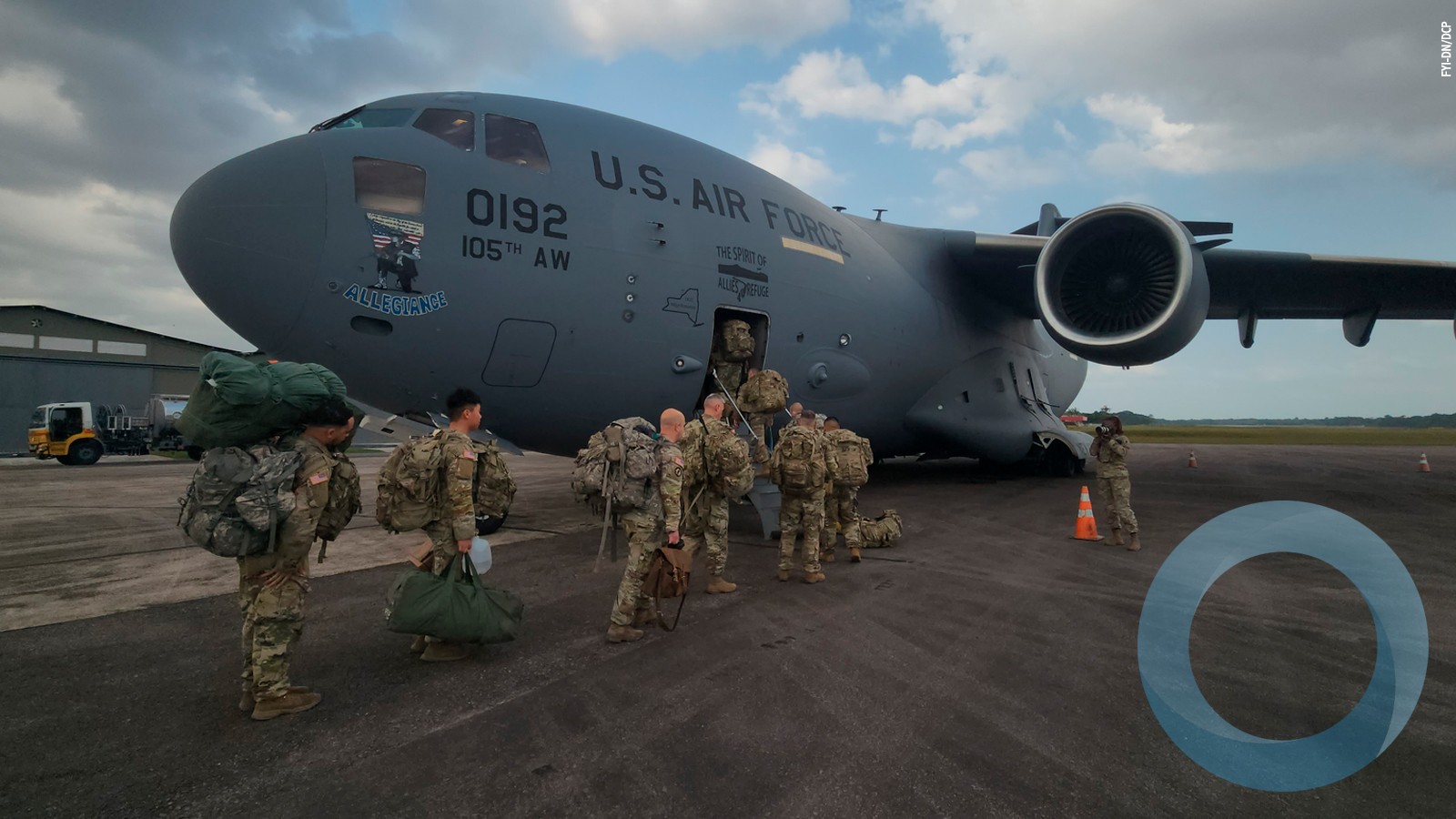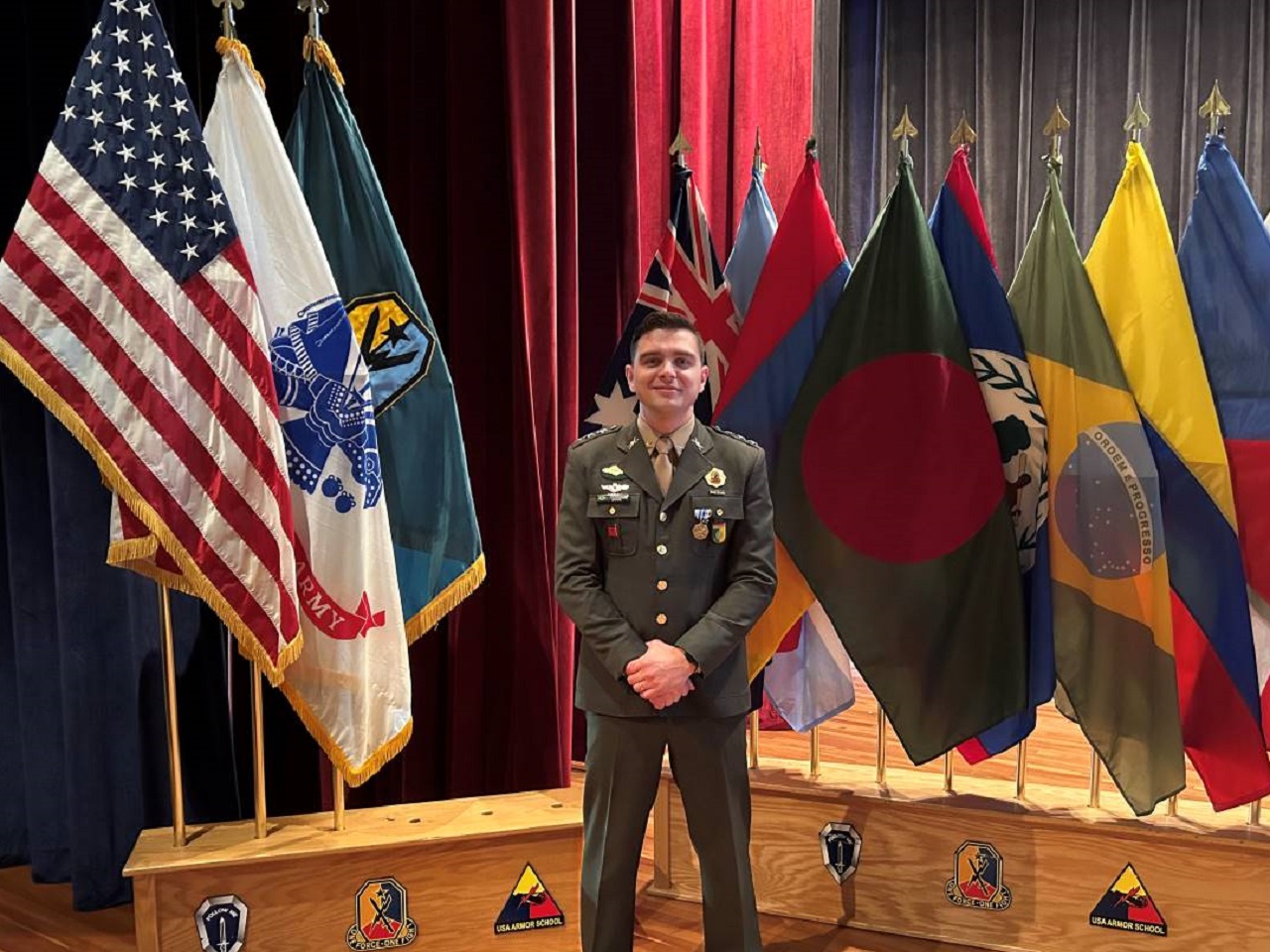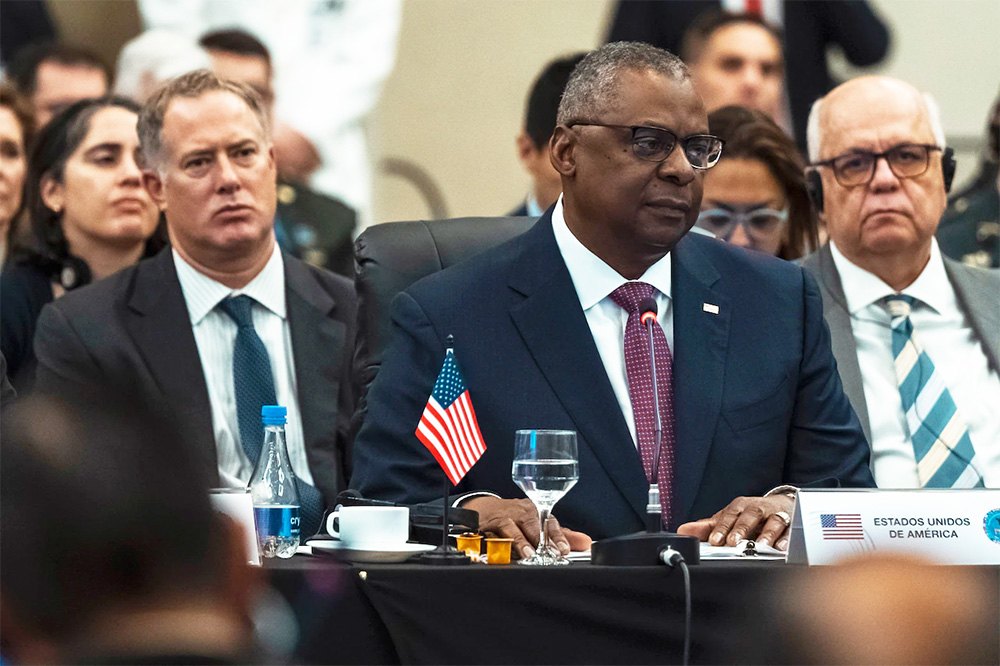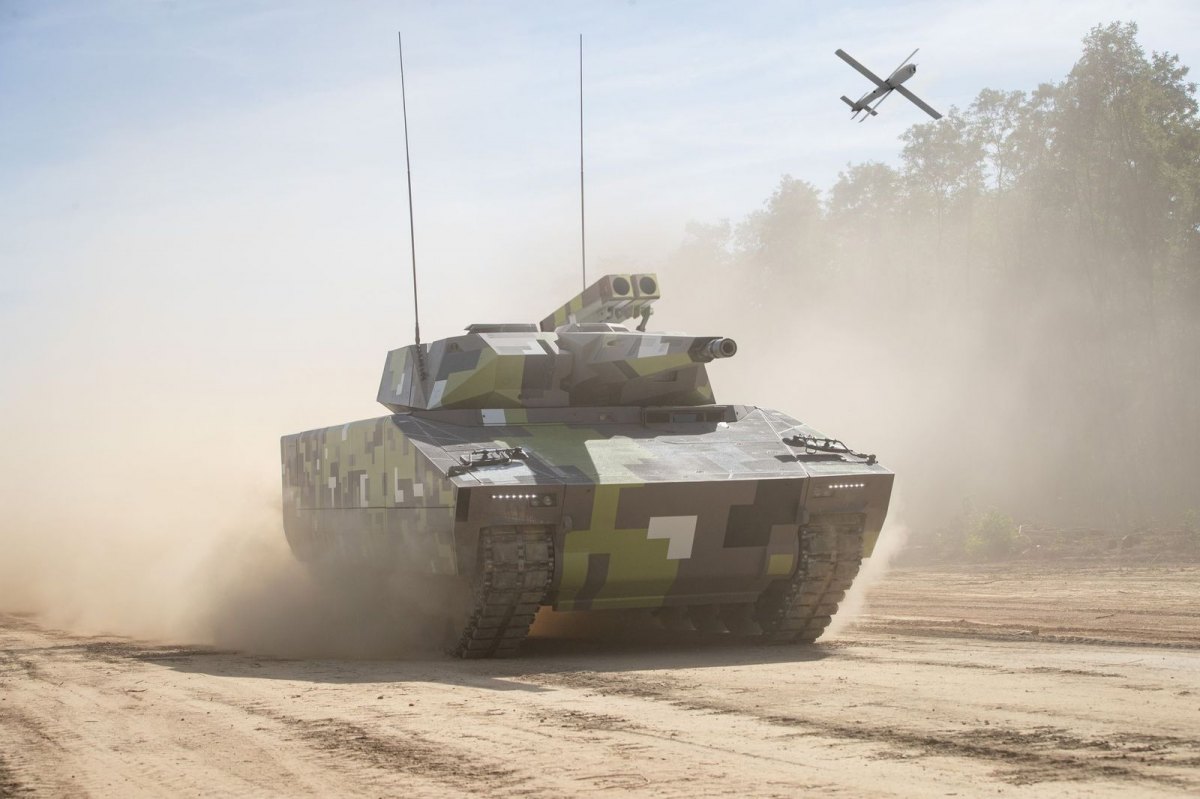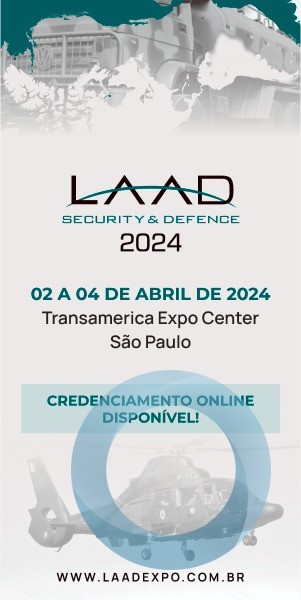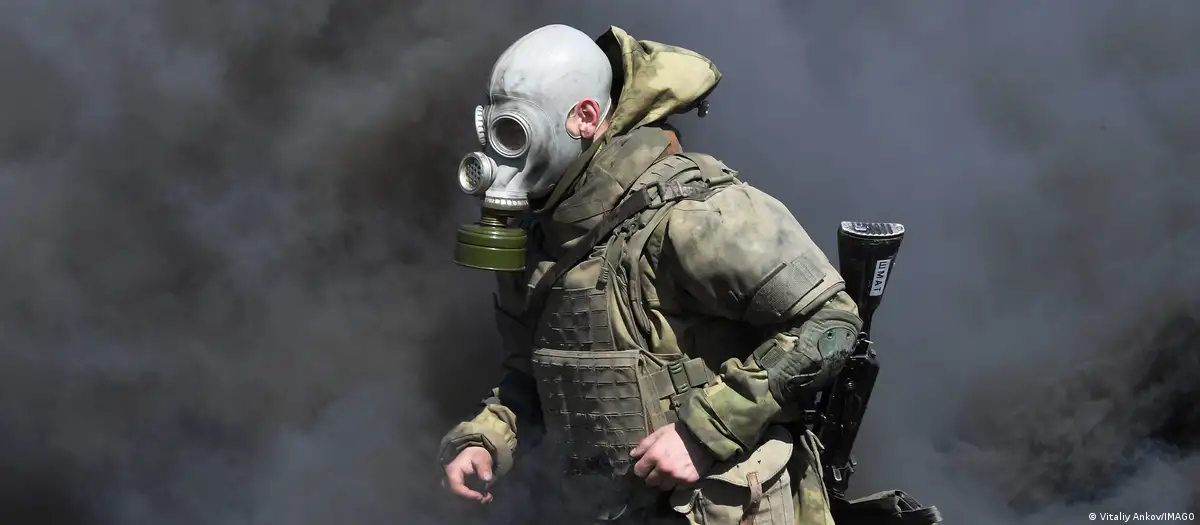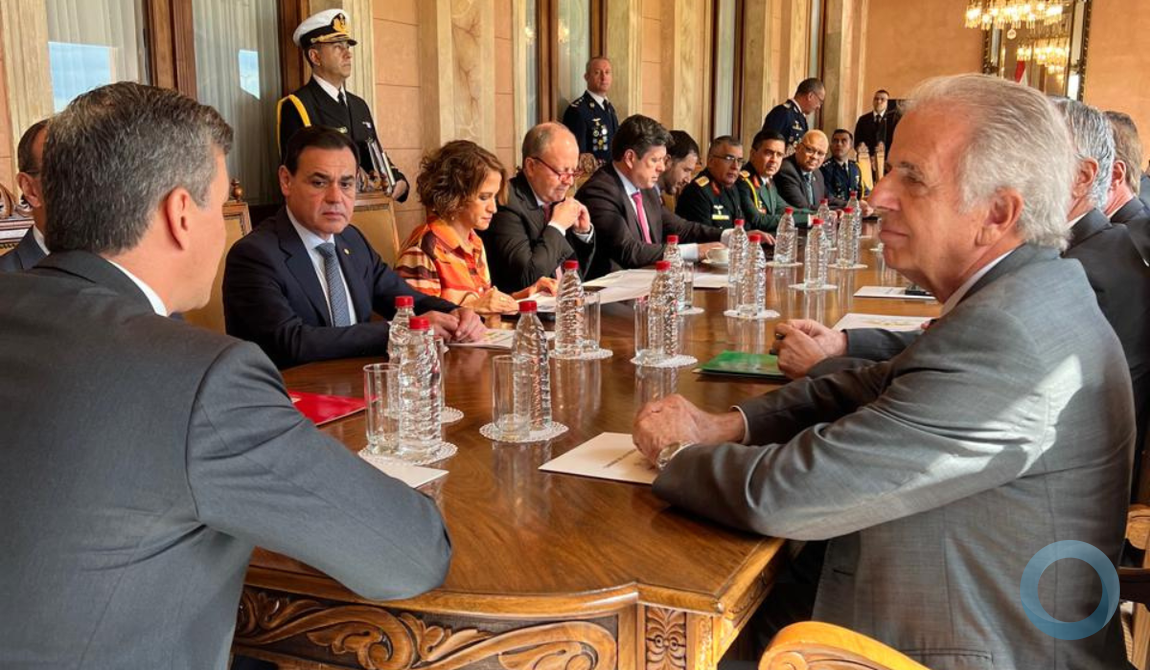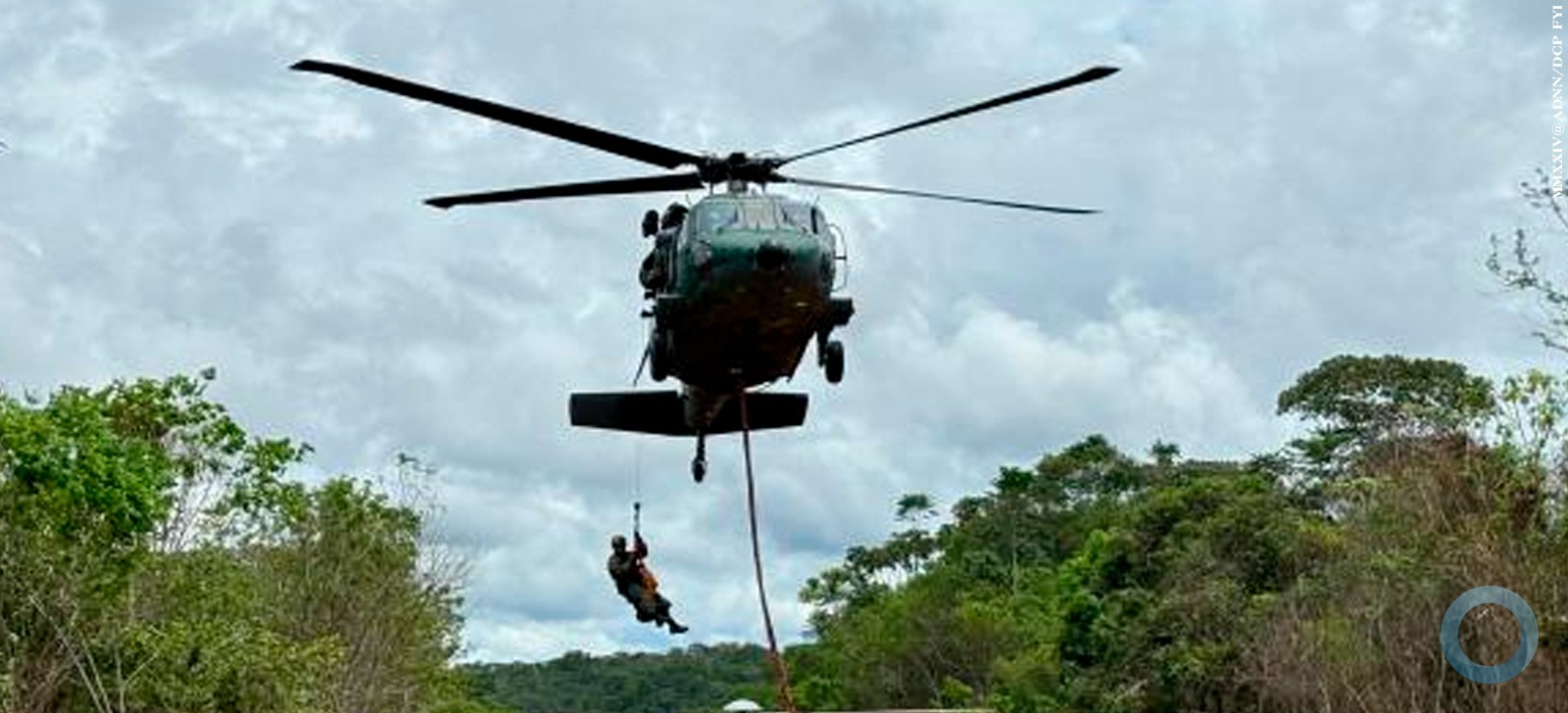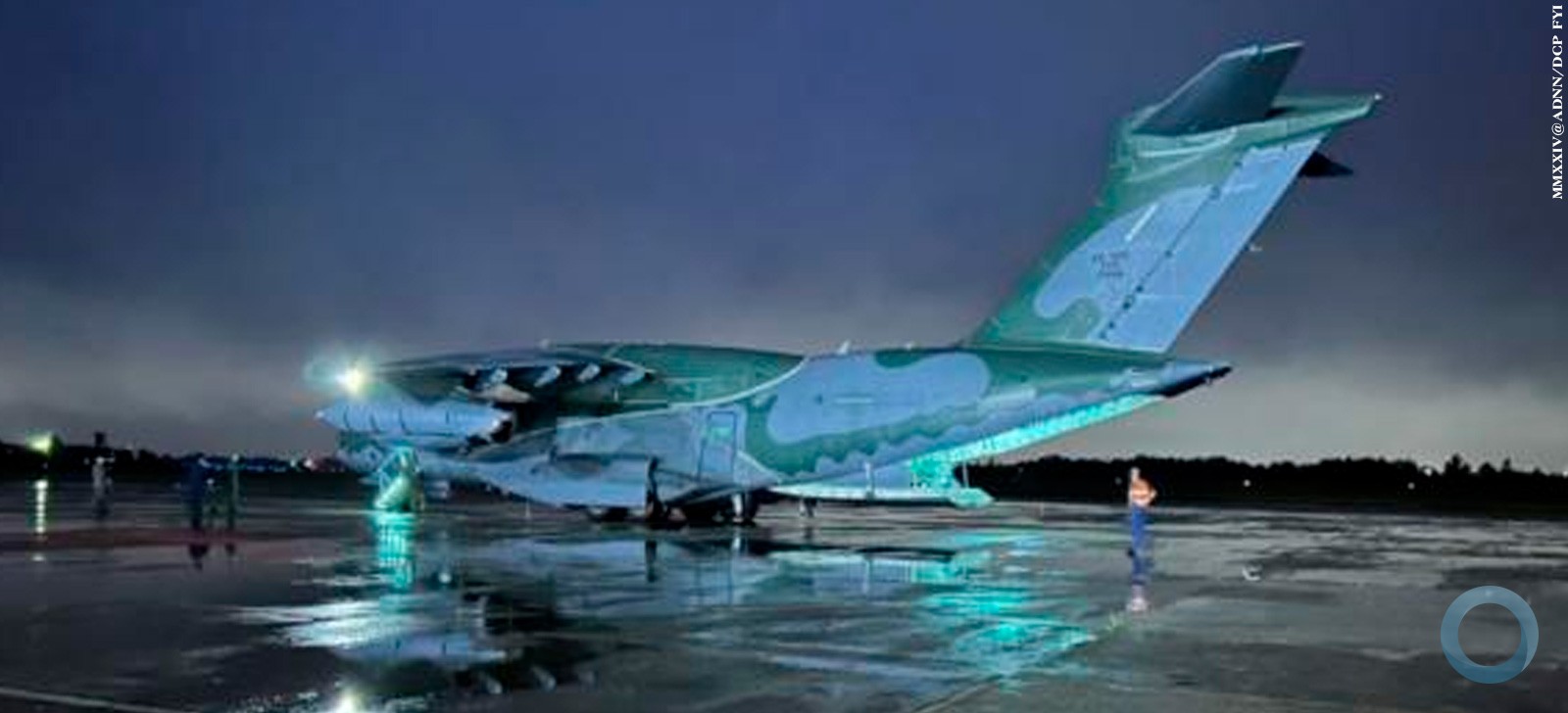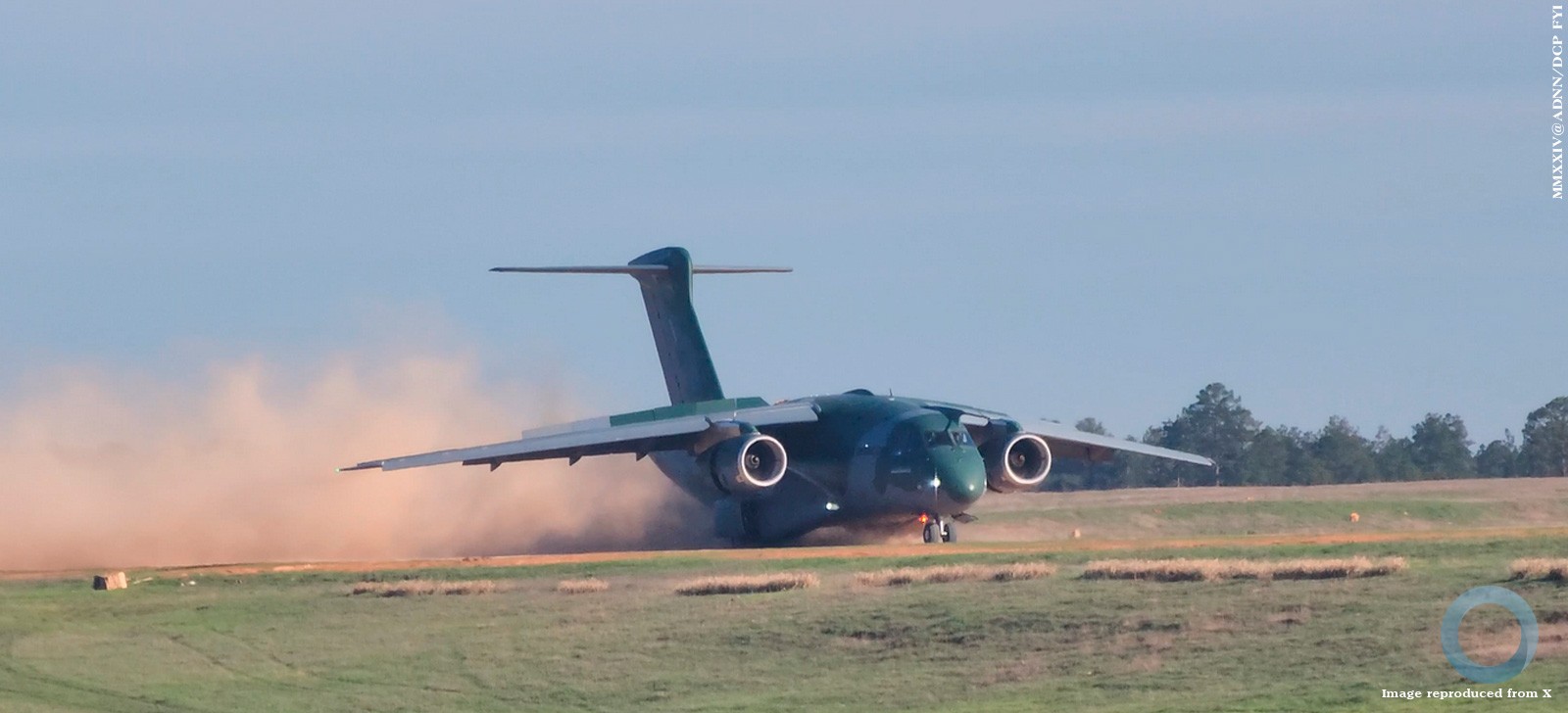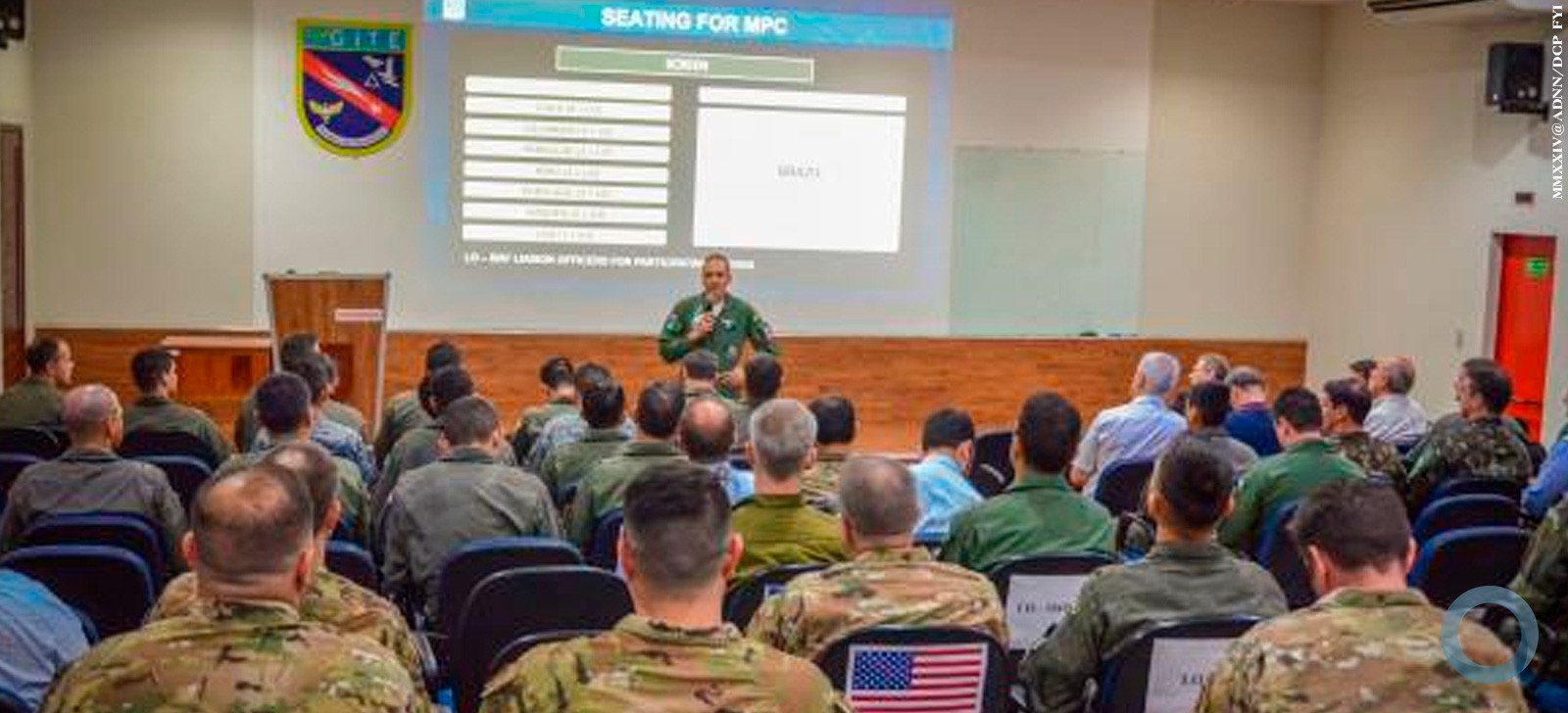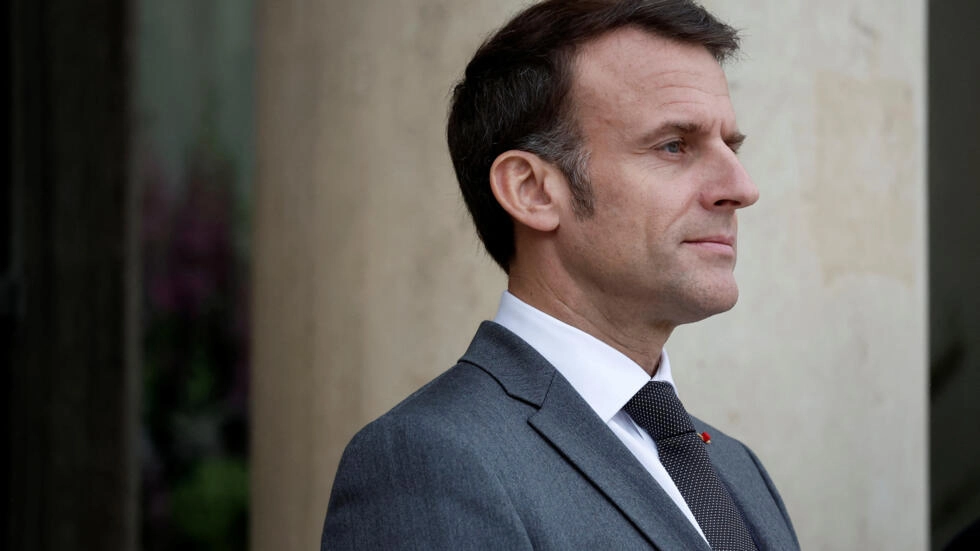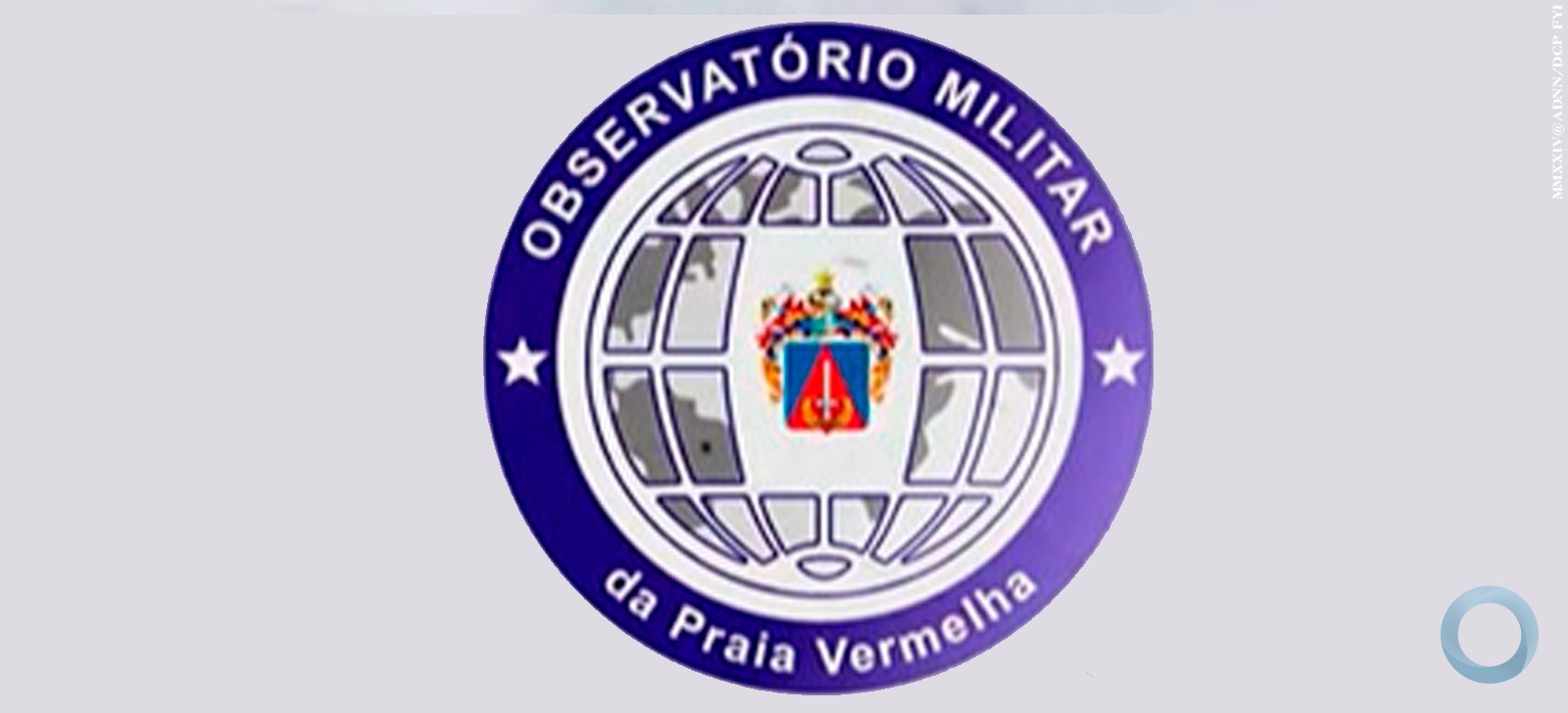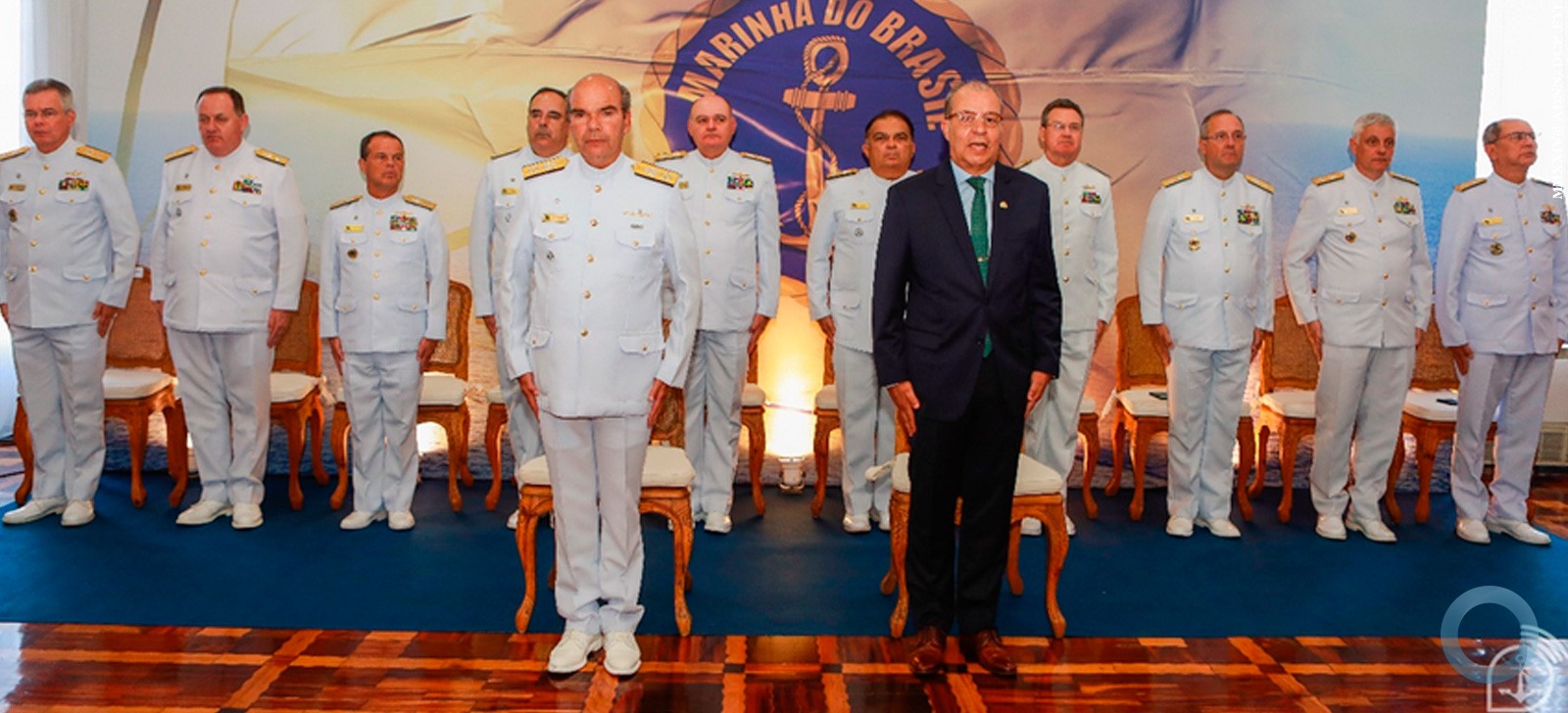|
DefesaNet Note Portuguese transcription Exclusivo – Entrevista: Ten Gen Charles Hooper, Diretor da DSCA DefesaNet Link Editor |
By Nelson During
Editing: Nicholle Murmel
The United States Secretary of Defense, James Mattis, has kicked off a diplomatic tour through South America, starting with Brazil. The Secretary arrived in Rio de Janeiro last Monday (August 13th) and his main task is to reinforce American presence and relations with South American partners.
Accompanying Mattis as part of the US delegation is Lieutenant General Charles Hooper, Director of the Defense and Security Cooperation Agency (DSCA) – the purpose of the organization is to deepen military and security cooperation between the United States and other nations.
LTG. Hooper has spoken with DefesaNet about the current status and future possibilities for the US-Brazil relationship in terms of equipment acquisition deals, cooperation for peacekeeping and humanitarian operations, and future defense deals.
“I would like to begin [this conversation] by saying thank you for this opportunity and mentioning that the United States and Brazil have a long and solid relationship that began when our military forces fought alongside each other during World War II and continues to this day. I’m here with the Secretary [James Mattis] to further strengthen the close alliance between our two countries and to demonstrate our commitment to continue to reinforce the strategic and cooperative partnership between Brazil and the United States”, said LTG Hooper. “We strive for a transparent, trustworthy and responsible relationship, and I’m happy to say that I think our partnership is growing through a number of defense and security cooperation efforts”.


Lieutenant General Charles Hooper, Director of the Defense and Security Cooperation Agency (DSCA)
DefesaNet: what are the US Government and DSCA’s expectations in terms of conversations with Braziian military?
Lieutenant General Charles Hooper: My only expectation is that, with the Secretary’s visit and, hopefully, my participation in that visit, will help to strengthen what is already an excellent and critical relationship between the United States and Brazil.
DefesaNet: What are the current efforts of the Defense Security Cooperation Agency concerning Brazil?
LTG. Charles Hooper: There are several examples of collaboration and cooperation between our defense industries: EMBRAER is working with Boeing. I think a noteworthy one is the A-29 Super Tucano aircraft.
DefesaNet: Are there any expectations or speculations about the next steps and future deals on the Super Tucano program?
LTG Charles Hooper: I couldn’t possibly speculate on that. What I can say, though, is that the Super Tucano fills a very unique niche in terms of capabilities, suited to address many of the counterterrorism and low-intensity conflict (LIC) challenges many countries face around the world. So I’m optimistic that our cooperation will continue along a positive track.
DefesaNet: in 2018, the United States changed its conventional weapons transference policies. What are the possible implications for Brazil?
LTG Charles Hooper: That was approved this spring by the President (Trump), and I can tell you, comprehensively, that the purpose of the change is to allow us to provide our partners, including Brazil, with a wider range of capabilities and to do so as quickly and effective as possible.
My agency is working very hard do eliminate some of the bureaucratic and administrative obstacles, while maintaining the integrity of the process and our commitment to Brazil and all our partners to get them the best equipment and capabilities at a fair price and as quickly as we possibly can.
DefesaNet: Are there any potential deals with Brazil that could benefit from this new weapons transfer policy?
LTG Charles Hooper: One of the reasons why we’ve come to Brazil is to listen to our partners and to determine and what the emerging needs in capabilities might be. At present, Brazil is the number one South American consumer of equipment from the United States, and I think that attests for the strength of the relationship between our two countries. But in terms of anything new, we are here to listen to our partners’ requests and emerging requirements for new capabilities.
DefesaNet: As for the Brazilian Armed Forces, what are the plans of the DSCA? Are there any arrangements at the moment that could turn into potential defense and security deals?
LTG Charles Hooper: Once again, we have a number of Brazilian military who are students in the US, and a number of very successful programs, military exercises and other cooperation efforts, not only in the Western hemisphere, but also in the Atlantic area and all around the world. One thing I’ll be doing while in Brazil is to listen to personnel from all three services and help determine what capabilities they might require, as well as working with them to provide them as quickly as possible.
DefesaNet: As for your personal background, you have served in high-ranking positions and developed critical projects related to Africa, which is a region of interest to Brazil. Could you share some of your experiences?
LTG Charles Hooper: that is a very good question. I was the director of strategy and security cooperation for the US Africa Command (AFRICOM), and during that time, I had the opportunity to meet with my Brazilian counterpart, the director of strategy for the Brazilian Armed Forces, and we discussed this very topic. Brazil participated in exercises with our Africa Command in the Gulf of Guinea, also participated in other maneuvers and taken the lead in coordinating exercises with Angola, with whom Brazil shares many historical points, as well as the Democratic Republic of the Congo. I think, and I feel that my colleagues at the Africa Command would agree, that there is a lot of potential in increased cooperation with Brazil on Africa-related issues.
DefesaNet: And how do you see this happening? Would Brazil and the United States work together, or would it happen under the UN’s command?
LTG Charles Hooper: Brazil has contributed on many multinational United Nations’ missions, and certainly [any US-Brazil cooperation efforts in Africa] would depend on the situation, but one thing is certain: Brazil has the potential to contribute in a very positive way to stability and peace both in the Haiti region and in Africa, in cooperation with the United States, or with a multination, UN effort.
DefesaNet: Operational and logistic demands for Africa appears to be very different from what the Brazilian forces have faced before. Do you see any need for upgrades and updates the Brazilian Forces, for instance, would have to undertake in order to be present in the African continent?
LTG. Charles Hooper: Brazilian forces are renowned for their expertise and professionalism. That comes as the result of their operations and contributions in countries like Haiti and Lebanon, and many other places around the world. So, once again, I see their potential to continue this contribution and become an even more positive force in ensuring peace and stability around the world. The United States looks forward to working with Brazil and its expert and professional Armed Forces in enhancing peace and stability.
DefesaNet: Besides Africa, what other opportunities do you see for US-Brazil joint operations?
LTG Charles Hooper: Again, that would certainly depend on the emerging and rapidly evolving security requirements around the world. But I would say that Brazil is already demonstrated willingness and ability to contribute in a number of contingencies worldwide.
We certainly cannot anticipate or speculate what challenges we may see in the world because the security environment is emerging so rapidly, but I attest that I’m sure Brazil will be considered in cooperation with multinational coalitions and the United States in order to face these emerging security challenges.
DefesaNet: As for this South America tour, will you be accompanying Secretary Mattis to Argentina, Chile and Colombia?
LTG. Charles Hooper: Yes, I will accompany the Secretary to all of these countries.
DefesaNet: What are the DSCA’s expectations for the South American continent?
LTG Charles Hooper: While accompanying the Secretary, my main mission is to enhance and strengthen relations with the countries we visit. A key point in our national defense strategy is strengthening alliances and attracting new partners. Our Agency does that based on four values starting with transparency: we always endeavor to provide the fastest and most complete information to our allies and partners. Then responsiveness: we respond as quickly as possible to our partners’ requests and requirements in terms of information but also in terms of attempting to provide capabilities.
Our third value is integrity: we are very proud of the fact that our systems are incorruptible, and we strive to provide information so that our partners’ governments can decide and explain why they would like to buy and receive the best capabilities and training in the world. And the last value is commitment: the United States, our commitment is beyond providing weapons and equipment; we are interested in building long term connections with our partners and developing relationships with their military personnel, because we understand those are the bases for strong alliances.
As we travel with the secretary, we reinforce those for values to our partners in Brazil and each of the nations in this tour.
DefesaNet: Brazil wishes to expand deals on Foreign Military Sales (FMS) agreements. We have already developed the M-113 armored personnel carrier (APC) modernization program, as well as for modernization and upgrades for M-109A5BR self-propelled artillery system. How could the DSCA help in discussing and improving Brazils FMS deals?
LTG Charles Hooper: One of the advantages of the FMS process is the integrity of the systems and that the two defense establishments are working together to use the FMS system. You’ve mentioned many of the platforms and weapons that Brazil is procuring – we work very hard in the FMS process to provide those capabilities as quickly as possible, it allows us to strengthen the relationship between our defense industries because we are working together.
I cannot speak about specific systems Brazil might want or not right now, but what I can tell is that we are going to do our very best to respond to Brazil’s requirements and request as fast as we possibly can.


LTG Charles Hooper, DSCA and US Embassy Staffs with Brazilian Defense Industrial Base representatives Photo – US Embassy
_______________
Main Topics
– LTG Charles Hooper joined Defense Secretary Mattis, in the meeting with Brazilian Defense Minister and Force Commanders. Also met wit represntattives of Brazilian Defense Industrial Base (see photo above).
– One of main actions is based on EMBRAER / Sierra Nevada A29 Super Tucano.
– DSCA under LTG Hooper leadership wants expand business with Brazil.
– First visit LTG Hooper to Brazil. Will come back for LAAD 2019.
Gave a Strong message: “Brazil is not only important in South America but worldwide”
______________________
Related Material
Recommended reading Defense Secretary James Mattis speech at Escola Superior da Guerra (Brazilian War College), 14AUG2018.
Portuguese
BR-US – Discurso do Secretário de Defesa James Mattis na ESG Link
English
BR-US – Sec Mattis Speech at ESG Link
BR-USA – Defense Industry Day
Dialogue of Defense Industrial Base and Brazilian Government with US Administration to establish a bridge for the future. Event of 2016.






